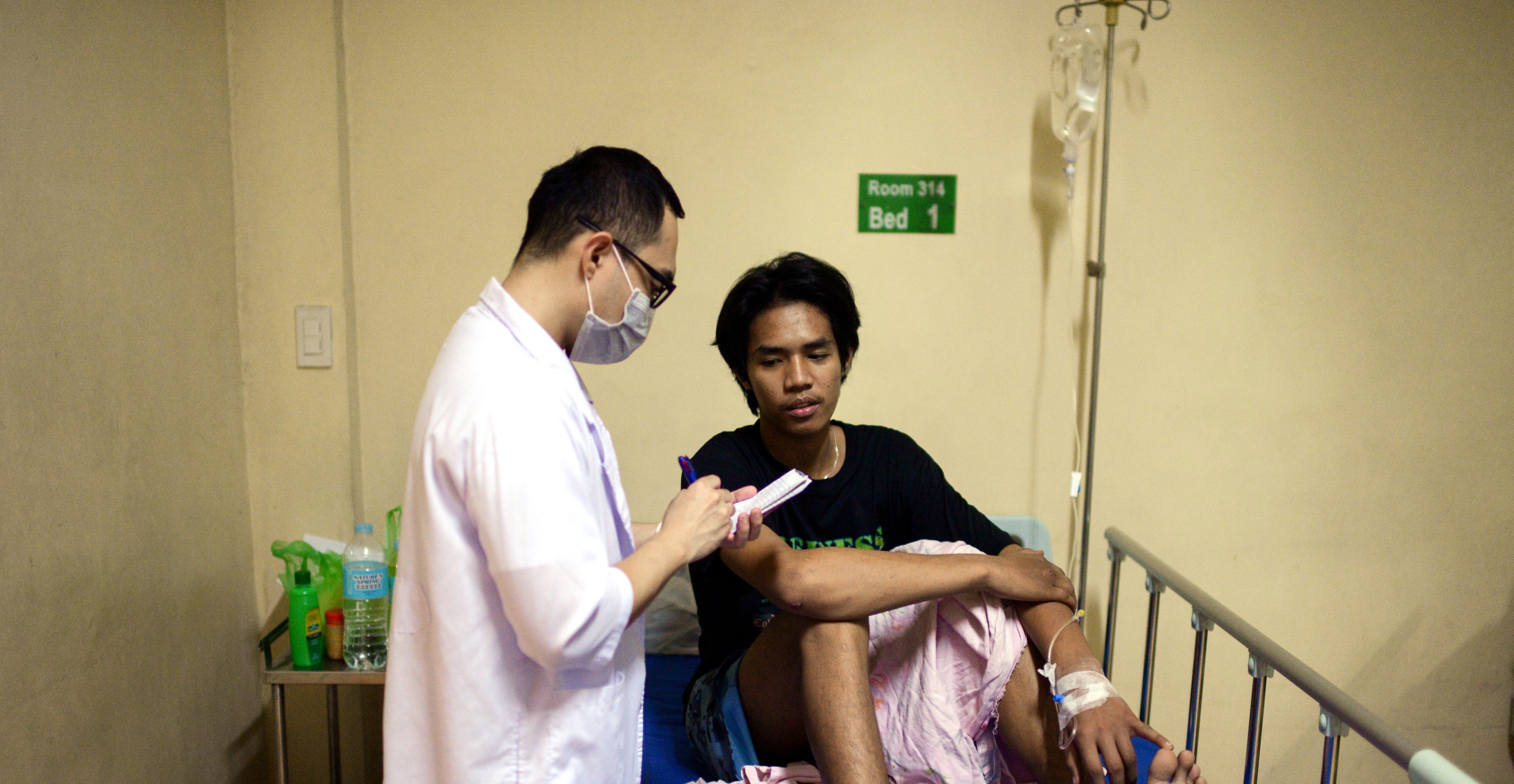COVID-19: What you need to know about the coronavirus pandemic on 2 February

COVID-19 vaccination programmes continue around the world - including here in Mexico. Image: REUTERS/Jose Luis Gonzalez
Listen to the article
- This daily news round-up brings you a selection of the latest news and updates on the COVID-19 coronavirus pandemic, as well as tips and tools to help you stay informed and protected.
- Top news stories: Omicron subvariant BA.2 likely to have same severity as 'original', says World Health Organization; WHO also warns about easing restrictions too quickly; record cases in Czech Republic and Turkey.
1. How COVID-19 is affecting the globe
Confirmed cases of COVID-19 have passed 381.9 million globally, according to Johns Hopkins University. The number of confirmed deaths has now passed 5.68 million. More than 10.1 billion vaccination doses have been administered globally, according to Our World in Data.
Tonga, hit by a tsunami last month, has gone into lockdown after two wharf workers were confirmed to have COVID-19.
Australia's COVID-19 hospitalization rate has fallen to its lowest in nearly three weeks.
Norway will scrap its remaining COVID-19 lockdown measures. A spike in infections is unlikely to jeopardize health services, the prime minister said yesterday.
The Czech Republic reported 57,195 new confirmed COVID-19 infections on Tuesday, its highest daily tally since the pandemic started.
Turkey has also recorded its highest daily case tally since the start of the pandemic, with 102,601 new confirmed COVID-19 cases - crossing the 100,000 mark for the first time.
Suspected reinfections account for around 10% of England's COVID-19 cases so far this year, a Reuters analysis suggests, after the UK Health Security Agency changed how it calculates COVID-19 data.
US regulators are considering the first COVID-19 vaccine for children under five, as Pfizer and BioNTech began the regulatory approval process on Tuesday.
The World Health Organization has warned that discarded medical waste from the COVID-19 pandemic threatens human health and the environment.

What is the Global Alliance for Social Entrepreneurship?
2. WHO: Omicron subvariant BA.2 likely to have same severity as 'original'
The BA.2 form of the Omicron COVID-19 variant doesn't seem to be any more severe than the original BA.1 form, a World Health Organization (WHO) official said yesterday.
Vaccines also continue to provide similar protection against the different forms of Omicron, Boris Pavlin of the WHO's COVID-19 Response Team told an online briefing.
The comments come as the BA.2 subvariant begins to replace Omicron's more common 'original' BA.1 subvariant in countries such as Denmark.
"Looking at other countries where BA.2 is now overtaking, we're not seeing any higher bumps in hospitalization than expected," Pavlin said.
The subvariant is already becoming dominant in the Philippines, Nepal, Qatar, India and Denmark, Pavlin said. It's thought to be in at least 57 countries.
3. Measures to curb the spread of Omicron should be eased slowly - WHO
Many countries have not reached their peak in cases of the highly transmissible Omicron COVID-19 variant and measures imposed to curb its spread should be eased slowly, the World Health Organization's technical lead on COVID-19 said yesterday.
"We are urging caution because many countries have not gone through the peak of Omicron yet. Many countries have low levels of vaccination coverage with very vulnerable individuals within their populations," Maria Van Kerkhove told an online briefing.
"And so now is not the time to lift everything all at once. We have always urged: always (be) very cautious in applying interventions as well as lifting those interventions in a steady and in a slow way, piece by piece. Because this virus is quite dynamic," she said.
Don't miss any update on this topic
Create a free account and access your personalized content collection with our latest publications and analyses.
License and Republishing
World Economic Forum articles may be republished in accordance with the Creative Commons Attribution-NonCommercial-NoDerivatives 4.0 International Public License, and in accordance with our Terms of Use.
The views expressed in this article are those of the author alone and not the World Economic Forum.
Stay up to date:
COVID-19
Forum Stories newsletter
Bringing you weekly curated insights and analysis on the global issues that matter.
More on Health and Healthcare SystemsSee all
Judith Love
November 18, 2025






